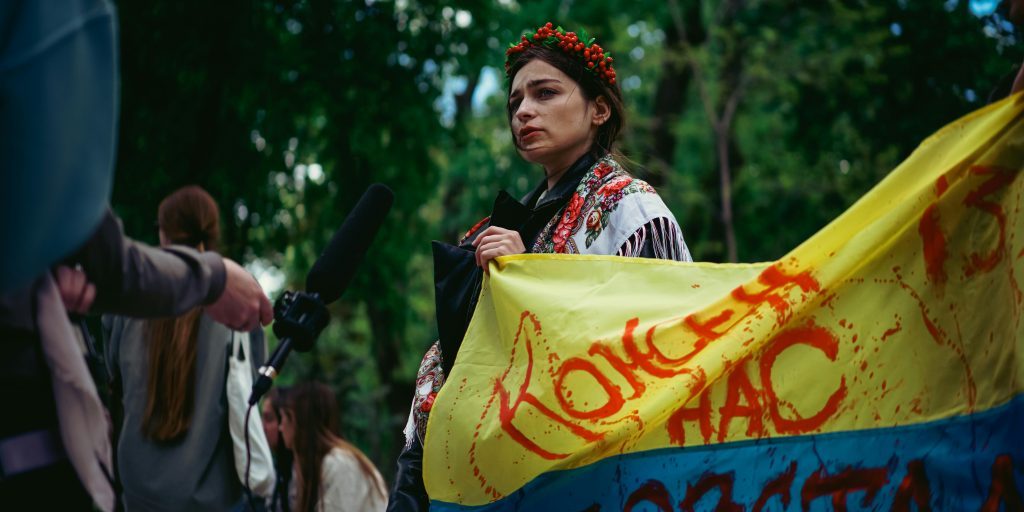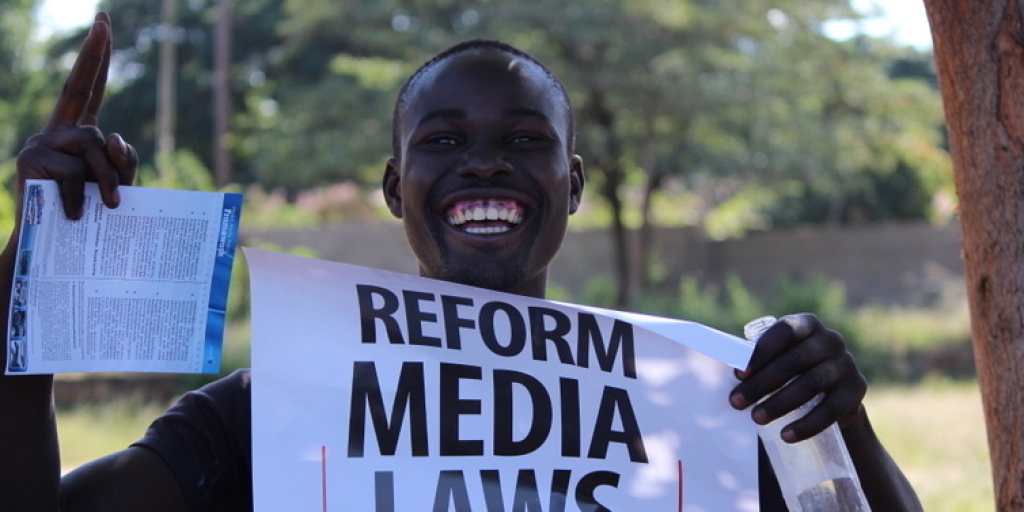‘It’s a shock’: end of US aid could change the media market in Balkans and Eastern Europe
PICTURE: Алесь Усцінаў/Pexels
US aid was long a lifeline for the Balkans and Eastern Europe. But that was before the return of Donald Trump to the White House.
The American president this week abruptly ordered a 90-day freeze on US-funded foreign aid and development worldwide. The Trump administration said it wants to review whether the distribution is aligned with his foreign policy, and called development efforts ‘woke’ programmes ‘that run contrary to our national interests’.
The US previously gave billions of dollars in humanitarian, development and security assistance to more than 100 countries, making it the world’s largest donor. The news of aid freezing was received as a shock also by independent media outlets who mainly depend on the grants with many countries facing increasingly significant threats to democracy and massive Russian disinformation campaigns (Editor – USAID funding conditions could include dictating the nature of content, which may have infringed on the ‘independence’ of media receiving it).
‘Eighty percent of our financing is from US government money. So it’s really a bad situation for us,’ said Anna Babinets, Editor-in-Chief at Slidstvo.Info, an independent Ukrainian outlet that publishes anti-corruption stories and does investigative journalism from the frontlines.
‘We expected that the situation would be worse after Trump’s inauguration, but we didn’t expect that it would be so bad and so immediately. We didn’t get any signals or anything from our donors or from our colleagues from other countries.’
Ukraine’s independent media has already been hit hard with the collapse of advertising since the Russian invasion, and the difficulty of finding a viable model. The end of American aid further complicates the situation
‘This type of journalism is very expensive, we cannot only sit in an office. People should go on [reporting] trips, and sometimes they are not successful. They should travel a lot around Ukraine. It’s dangerous and expensive. You can work one, two, or three months sometimes for one story,’ said Babinets, who works with around 15 people.
Independent media from other countries like Moldova, North Macedonia, Bosnia and Herzegovina, Hungary, Poland and Romania are also concerned by the impacts on USAID.
‘It was a big shock for us,’ said Anastasia Condruc, Editor-in-Chief at Moldova.org, an independent outlet that focuses on storytelling, solutions journalism and video storytelling.
‘Around 75% of our budget comes from European and American grants. For now, we have the budget for salaries for the month of February and a bit of March. So the salaries won’t be affected [right away], but after that, there is a possibility … we really hope that it’s not going to get there.’
Similar concerns exist for SDK, an independent media outlet in North Macedonia which has nine full-time employees and eight local correspondents.
‘SDK newsroom is under severe threat now, as we were waiting for the renewal of two projects funded by USAID, which are on hold. These projects contribute 25 percent of the newsroom’s budget,’ said Goran Mihajlovski, the Editor-in-Chief.
‘Independent media in Macedonia [find it] impossible to be financially sustainable because the market is very small and the country is poor. So you either get funded by foreign grants or from political parties. There is no third way.’
Without notice, these outlets must now quickly find alternatives to survive. Many are turning to their readers and audiences for donations.
The Kyiv Independent (which relies on reader revenue and therefore hasn’t yet been hit by the halting of USAID programmes) has run a fundraiser to help a few other media outlets which are affected. But in the context of the war in Ukraine, requests for donations could prove difficult.
Babinets says of Slidstvo.Info, ‘For the last three years, we almost didn’t ask people to donate for our activities because Ukrainians were already donating for the army and for people who are really in hard situations because of the war’.
‘But now it’s a challenging time for us, so we have to ask people to support us, even if they support other things.’
Slidstvo.Info launched an appeal for donations online. The outlet is also counting on the monetisation of its YouTube videos, even if this remains minimal – around $720-840 each month, which is 5% to 7% of their budget.
‘For now, I don’t want to cut [jobs], but maybe for March or April, if it will not be solved in some way, we will have to change our plans for production, and maybe we will have to cut some positions,’ said Babinets.
SDK also relies on donations, but the effects are difficult.
‘We have a donation pop-up button, but we see too little effect, around 200-300 USD monthly, even if we promote it all the time. The donations contribute less than 3 to 5 percent of the needed budget,’ said Mihajlovski.
Moldova.org also launched an online crowdfunding campaign on Patreon, and tried to diversify its income by finding new opportunities.
‘There’s a lot of wine-producing companies in Moldova that are finding themselves in a similar situation as they were helped by the US. So, many of them are reaching [out to] us with small budgets. We can maybe come to an agreement to help them promote their services and products, and at the same time, replenish our budget,’ said Condruc.
What will be the future for these independent media outlets? Will they manage to survive in the long term if Trump doesn’t restart this aid? Lots of questions remain unanswered. But the fears are real
‘We are openly feminist, and we write a lot about human rights and minorities. For us, it’s very important to continue to be funded by entities that will not interfere with our editorial policy,’ explained Condruc.
‘Seeing where things are going in the US, I’m not sure if this is going to be the case. We hope that the funding will be restored for Moldova, but our hopes are not high.’
The question of a geopolitical opportunity for Moscow while independent media [are] weakened by the USAID challenge, also arises. Moldova will hold a pivotal Parliamentary election later this year. This comes after the pro-Western government accused Russia of meddling in two key votes last year.
‘[This] is a big threat to our democracy that is … very young and fragile. The disinformation campaign is already bigger than anyone can ever imagine,’ said Condruc, who underlines that, contrary to the financial support that certain media outlets may receive from Russia, her organisation had to act with transparency.
‘If you have American or European grants, you have to be very transparent. You have to do a lot of reporting on how you are spending exactly that money. From the Russian side, what we see is a huge amount of money, like tens of millions, that are being poured into various tools to boost misinformation.’
Russian disinformation could also accelerate in Ukraine while small media are threatened with closure.
‘I think it will change the media market,’ said Babinets. ‘Russian propaganda will come, but also some Ukrainian businessmen and politicians will buy small media because there is some talk about elections in Ukraine for this year, and, of course, politicians want to have their own media.’
There are also concerns in North Macedonia about the consequences for democracy and keeping institutions accountable.
‘The crucial output of these independent newsrooms is investigative journalism about corruption and hindering rule of law,’ explained Mihajlovski. ‘Their voices are very important as a tool for public pressure on the government, judiciary, law enforcement agencies and Parliament to fight corruption.
‘If these voices are silenced [because of a] lack of funds, this is going to be devastating for democracy.’
- This article first appeared here




